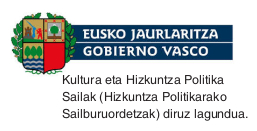Evaluation of the summary and its process in primary and university education
DOI:
https://doi.org/10.26876/uztaro.5095Keywords:
Summarization skills, Education, Evaluation, Extraction, Abstraction, HierarchyAbstract
It is crucial for teachers to develop strong summarising skills at each level of study in order to guide their work effectively. However, this need is often overlooked. To address this, it is important to implement summarising strategies and assess students’ performance. By analysing their results, we can determine the expected summarising skills at each level. This study examines the summarising skills of primary school and university students. We evaluate and compare the summaries of 40 students and classify them according to their quality. In addition, we analyse the summarising process by observing the students’ approaches. The results highlight key areas for improvement at different levels of education and reveal significant differences between primary and university students. This research provides insights into the development of summarising skills, helping teachers to refine their teaching methods and better support students in mastering this essential skill.
Downloads
References
Alonso, J. (2017). El resumen documental. https://sabus.usal.es/docu/pdf/resumen.pdf
Alonso, M.I., & Fernández, L.M.M. (2009). El resumen documental: un reto didáctico. Federación Española de Asociaciones de Archiveros, Bibliotecarios.
Álvarez, T. (2007). A vueltas con el resumen escolar: esta vez, en la pizarra, con tiza y borrador. Didáctica (lengua y literatura), (19), 11-30.
Anderson, V., & Hidi, S. (1988). Teaching students to summarize. Educational Leadership, 46(4), 26-28.
Arguelles, I. (2004). Evaluación y calificación de resúmenes de textos expositivos en el aula de ILE/IFE: la güía “babar”. Ibéerica, Revista de la Asociacióon Europea de Lenguas para Fines Especíıficos, (8), 81-99.
Atutxa, U. (2022). Laburpen-gaitasunaren garapena eta eskolako laburpen-testuen prozesamendua [Doktorego-tesia]. Universidad del País Vasco / Euskal Herriko Unibertsitatea.
Atutxa, U., Iruskieta, M., Ansa, O., & Molina, A. (2017). Compress-eus: I(ra)kasleen laburpenak lortzeko tresna. EUDIA: Euskararen bariazioa eta bariazioaren irakaskuntza-III, 87-98.
Benzer, A., Sefer, A., Oren, Z., & Konuk, S. (2016). A student-focused study: Strategy of text summary writing and assessment rubric. Egitim ve bilim-education and science, 41(186).
Iruskieta, M. (2014). Pragmatikako erlaziozko diskurtso-egitura: deskribapena eta bere ebaluazioa hizkuntzalaritza konputazionalean [Doktorego-tesia]. Universidad del País Vasco / Euskal Herriko Unibertsitatea.
Khoshsima, H., & Rezaeian-Tiyar, F. (2014). The effect of summarizing strategy on reading comprehension of iranian intermediate EFL learners. International Journal of Language and Linguistics, 2(3), 34-139.
Mann, W.C., eta Thompson, S. A. (1987). Rhetorical Structure Theory: A Theory of Text Organization. Text, 8(3), 243-281.
Moretta, P.Y. (2016). El proceso de aprendizaje: fases y elementos fundamentales. Revista San Gregorio, (11), 70-81.
Ruiz, J., & Moya, S. (2020). Evaluación de las competencias y de los resultados de aprendizaje en destrezas y habilidades en los estudiantes de grado de podología de la Universidad de Barcelona. Educación médica, 21(2), 127-136.
Sanz Moreno, Á.M. (2005). Irakurmena lantzeko jarduerak nola prestatu: Lehen Hezkuntzako 3. Zikloa eta DBHko 1. Zikloa. ‘Cómo diseñar actividades de comprensión lectora: tercer ciclo de Primaria y primer ciclo de la ESO’. Nafarroako Gobernua, Hezkuntza Departamentua.
Van Dijk, T.A. (1979a). Recalling and summarizing complex discourse. In W. Burghardt & K. Hölker, Text Processing / Textverarbeitung: Papers in Text Analysis and Text Description / Beiträge zur Textanalyse und Textbeschreibung (49-93. or.). De Gruyter. https://doi.org/10.1515/9783110837537
Van Dijk, T.A. (1979b). Relevance assignment in discourse comprehension. Discourse Processes, 2(2), 113-126.
Van Dijk, T.A. (1980). Algunas notas sobre la ideología y la teoría del discurso. Semiosis, (5), 37-53.
Van Dijk, T.A., & Kintsch, W. (1983). Strategies of discourse comprehension. Academic Press New York.
Yamanishi, H., Ono, M., & Hijikata, Y. (2019). Developing a scoring rubric for l2 summary writing: a hybrid approach combining analytic and holistic assessment. Language Testing in Asia, 9(1), 1-22.
License
Copyright (c) 2025 Unai Atutxa Barrenetxea, Mikel Iruskieta

This work is licensed under a Creative Commons Attribution-NonCommercial 4.0 International License.




















